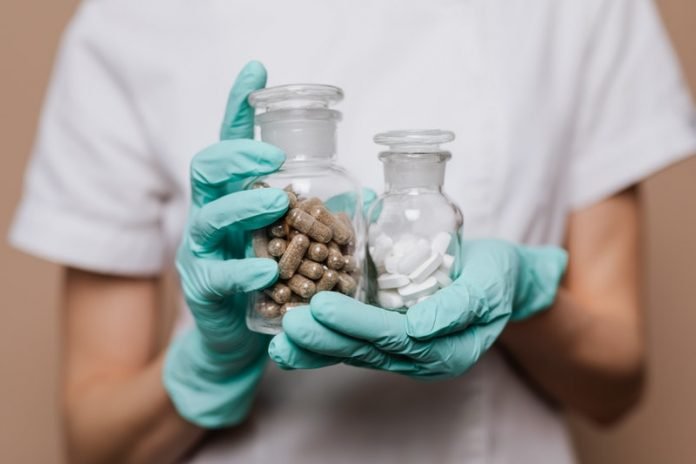
In a recent study from Harvard Medical School and elsewhere, researchers found that two existing drugs could inhibit the COVID-19 virus from infecting human cells.
Both drugs, vacuolin-1 and apilimod, originally developed years ago, target a large enzyme called PIKfyve kinase.
Before this study, little was known about this enzyme’s role in COVID-19 infection.
The current findings show that targeting this kinase through a small-molecule antiviral against SARS-CoV-2 may be an effective strategy to lessen the seriousness of COVID-19.
The work, which will need to be replicated in human trials, suggests a potential new target for COVID-19 therapies.
The study is published in PNAS. One author is Tomas Kirchhausen, a professor of cell biology.
The team had previously shown that the two drugs have similar chemistry and were both effective inhibitors against the Ebola virus.
When COVID-19 began to hit the U.S. hard in early March, the researchers remembered that the kinetics of cell entry of the Ebola virus were similar to those of coronaviruses like SARS-CoV-2.
Within a week, they found apilimod worked extremely well in preventing SARS-CoV-2 infection in human cells in the lab.
They also found that like apilimod, vacuolin-1 is a very strong inhibitor for viral infection in the lab.
In another group, researchers did a screen of 12,000 clinical-stage or FDA-approved small molecules, and they found apilimod was one of the best drugs for inhibiting SARS-CoV-2 virus replication.
The drug apilimod’s clinical testing in 700 healthy volunteers and patients showed it did not produce significant side effects even when given to patients for more than a year at high doses.
Currently, the team is testing whether apilimod reduces the seriousness of COVID-19.
They will test apilimod’s safety, tolerability, and efficacy in reducing the amount of virus in about 140 patients with confirmed early-onset COVID-19.
Looking forward, the team hopes to identify other drugs to be given in addition to a PIKfyve kinase inhibitor.
Copyright © 2020 Knowridge Science Report. All rights reserved.



